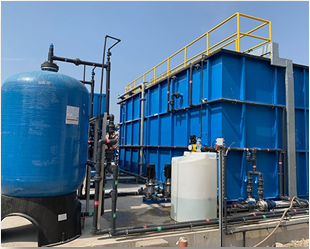Activated Carbon Filter Process

Activated Carbon Filter Process
The activated carbon filter process is a widely used method for water and air purification, as well as for various industrial applications. It employs activated carbon, a highly porous material with an extensive surface area, to adsorb and remove impurities and contaminants from a fluid or gas stream. When water or air passes through the activated carbon bed, organic compounds, chlorine, volatile organic compounds (VOCs), and other pollutants adhere to the carbon’s surface, effectively trapping them. This process is highly effective at improving water and air quality by removing unpleasant tastes, odors, and a wide range of chemical contaminants. Activated carbon filters are commonly used in drinking water treatment, wastewater treatment, air purification systems, and industrial processes where the removal of specific contaminants is essential for safety and environmental protection.
